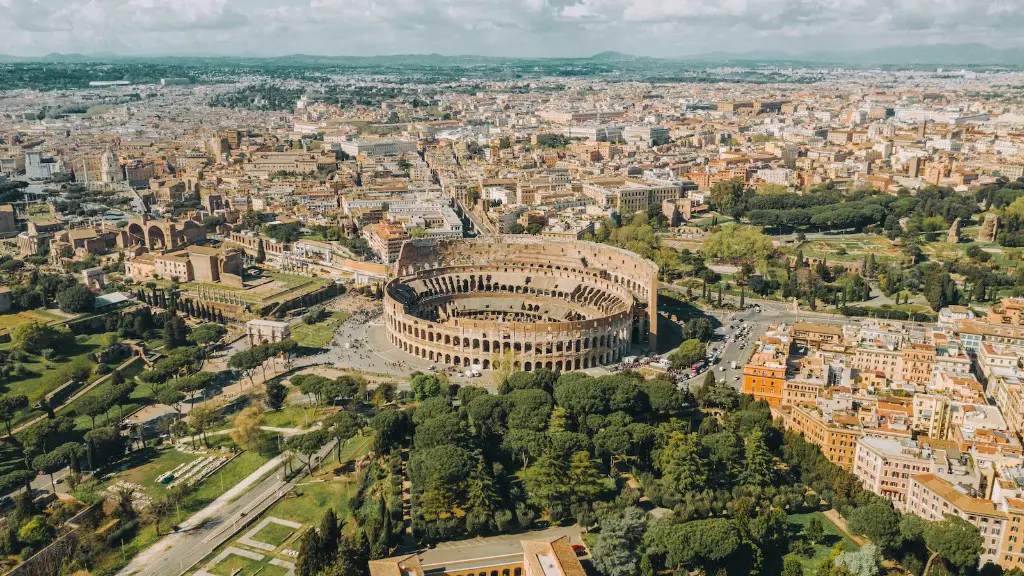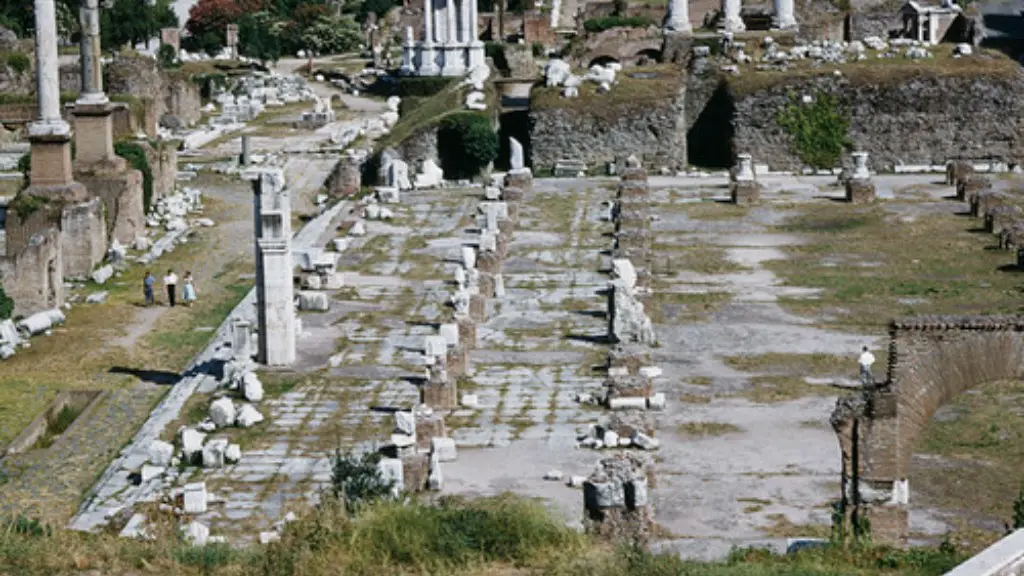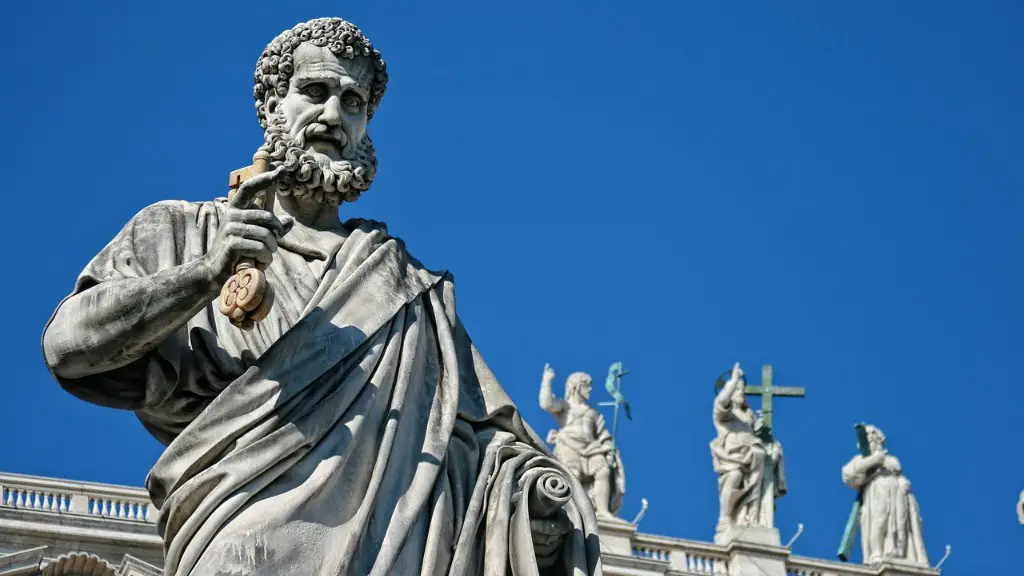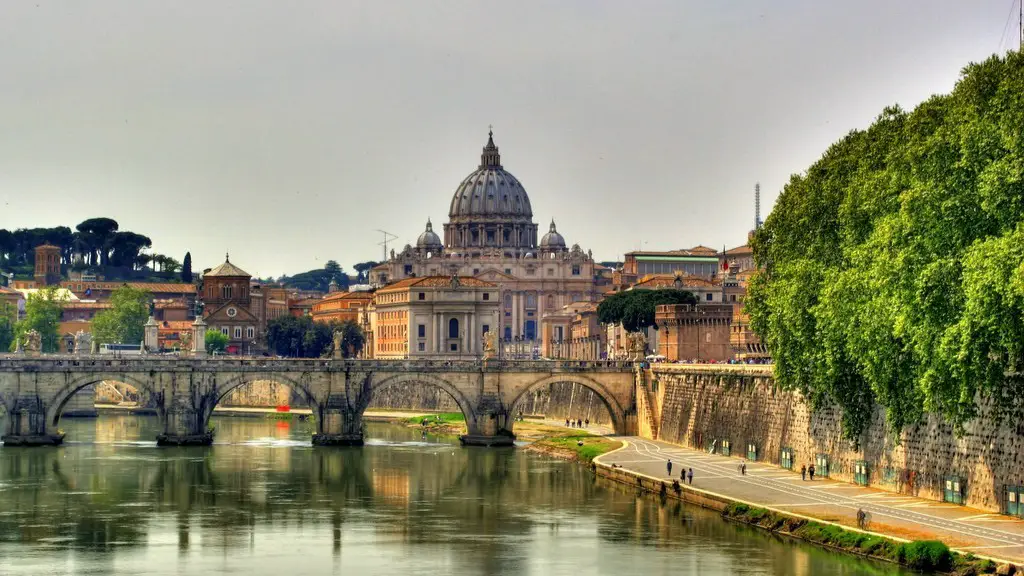Since the birth of Rome, the concept of ‘plebeian’ has been around. A plebeian was a common person in the ancient Roman Republic, who had the same rights as a patrician, apart from holding public office and military positions. For a long time, they were seen as the underclass, being treated as subservient to the patrician elite. Throughout the Republic and early Empire, plebeians could not vote or hold certain governmental positions, but things changed over time, as plebeians stood up for their rights.
However, the plebeians weren’t just an ancient Roman underclass. They were also a combination of farmers, tradespeople, artisans and craftsmen, and played a huge role in Rome’s economy. They supported the patricians in a number of important roles, from working the land and running businesses, to keeping the military strong. Despite their lack of political influence and representation, their economic power was immense, and their contributions to the Republic were vital.
The plebeians had no official representation until 494 BC, when several of the more well-off plebeians formed the Council of Plebs, or the ‘plebeian council’, to advocate on their behalf. This was later replaced by the Plebeian Assembly, which managed to climb the political pecking order and challenge the patricians. Eventually, the Plebeian Assembly became the primary representative legislative body of Rome.
Despite their political advancements, the plebeians were still subject to certain restrictions. They were not allowed to marry patricians, as well as own wealthier land. It wasn’t until 287 BC when the Hortensian Laws were approved and passed, that these restrictions were abolished and the power of the plebeians was formally recognised. From then on the plebeians saw a marked increase in their power and influence.
Over the course of their history, the plebeians had various other roles in Roman society. They served as soldiers in the military, produced goods for the wealthier patricians, and played an important role in the arts and culture, particularly through music, art, theatre and literature. They served as public speakers and in the Senate, and held important roles in religious ceremonies.
Throughout Rome’s history, the power of the plebeians waxed and waned, but their constant presence meant that no matter what era or Republic was in power, the plebeians were present. They were loyal citizens and provided a necessary backbone for the Republic to function, aiding in its economy, politics and military. In this way, the plebeians of ancient Rome made an invaluable contribution to the development and success of the Roman Empire.
Evolution of Plebeian Representation
Throughout their time, the plebeians had to fight for their rights and representation. From the first representation by the Council of Plebs to the Hortensian Laws, the progress of plebeian representation in Rome was a slow one. It wasn’t until the end of the Republic that plebeians reached the point of near equality with the patricians, and it wasn’t until the emperor Hadrian that plebeian representation was codified in law. This legalisation gave plebeians the opportunity to express their grievances, and allowed them to fully participate in the politics of Rome.
The plebeians soon began to rise, claiming influential positions in the Senate and all levels of government, and eventually even the imperial throne. Despite the occasional tensions between patricians and plebeians, the presence of plebeian representation in the Republic brought about a tremendous shift in political and social matters. This development ultimately led to the benefits of representing all citizens, no matter their class or wealth, which eventually became a norm within Roman society.
The evolution of plebeian representation was an important facet of the Roman Republic. It went from being a forgotten class to possessing some of the most influential and powerful positions in government. Despite the slow and relentless struggle for recognition, eventually the plebeians began to gain their deserved rights and recognition and served as an example of how representation of all classes is necessary for a prosperous society.
Plebeian Class System
To survive in Ancient Rome, thousands of plebeians were organised into a class system. This system gave the plebeians a sense of communal belonging and made it easier to draw the support they needed to survive in a hostile environment. As Rome developed and entered its ascendancy, so did the plebeian class divisions.
The plebeian class system was divided into three layers: the highest, being the wealthier and more influential plebeians; the middle, consisting of craftsmen and artisans; and the lowest, composed of poorer farmers and labourers. This system meant that plebeians could identify their social and economic standing, and act in ways that benefited their class. Through this class system, plebeians could come together and fight for their rights, and develop a sense of solidarity and mutual support.
It is likely that this system was in place since the start of the Republic, and it served as a safety net for the plebeians throughout the Republic’s history. By establishing a system to protect their rights and income sources, plebeians were better able to survive the periods of turbulence that troubled Rome through its history.
Role of Plebeians in Roman Expansion
The role of plebeians in Rome’s expansion was hugely important. Testers, doctors, merchants and builders, public speakers, teachers, administrators and farmers were all essential to the efficiency and success of the Roman Empire. All were basically plebeian roles and possibly the most critical to Rome’s Empire.
Without plebeians, the Roman Empire would have struggled to find the necessary manpower and resources to be able to expand as quickly as it did. Their contributions were also essential to keeping the legions in the field and well supplied. Plebeians served in the legions and provided the necessary resources for campaigns and logistical support. They provided comfort and stability to soldiers in the field and fought side by side with them.
In addition to the legions, the plebeians also served in the political apparatus of Rome. Rome’s provincial governors, or proconsuls, were most likely plebeian in origin, as they were chosen from amongst the most distinguished citizens of plebeian descent. This helped create a better balance between plebeian and patrician power.
Roman expansion would not have been possible without the resources and manpower provided by the plebeians. Their contributions provided the necessary foundation for Rome to become one of the ancient world’s most successful empires, and their presence in governing positions helped to create a more diverse and democratic society.
Interaction with Patricians
Despite the separation between plebeian and patrician classes, they still interacted with each other in a variety of ways. Intermarriage between the two classes was common, formalised through the legal agreements known as Confarreation, which essentially meant marriage between a plebeian and a patrician. This helped to bridge the gap between the classes and give the plebeians more power and influence in Roman society.
In addition to intermarriage, the two classes often consulted each other on matters of trade, negotiations, and war. The Plebeian Assembly consulted the Senate on matters of interest, and both classes appreciated each other’s skills. Though there were moments of tensions between the two classes, in general the plebeians and patricians worked together for the success of Rome.
The plebeians also provided a unique political and social environment for patricians. By allowing plebeians greater representation, the patricians had access to a range of different points of view, which helped them develop their own opinions and gain a better understanding of Roman politics. This positive relationship between plebeians and patricians was a driving force behind the success of early Rome.
The presence and influence of the plebeians in ancient Roman society was immense. They filled vital roles in the army, government, trade, industry and society in general, and were the backbone of the Republic’s success. Their representation and recognition helped create a more diverse and inclusive society, and their presence in varying roles allowed them to shape the politics, culture and economy of the Roman Empire. Their contributions were vital and they remain an important part of Rome’s history.




